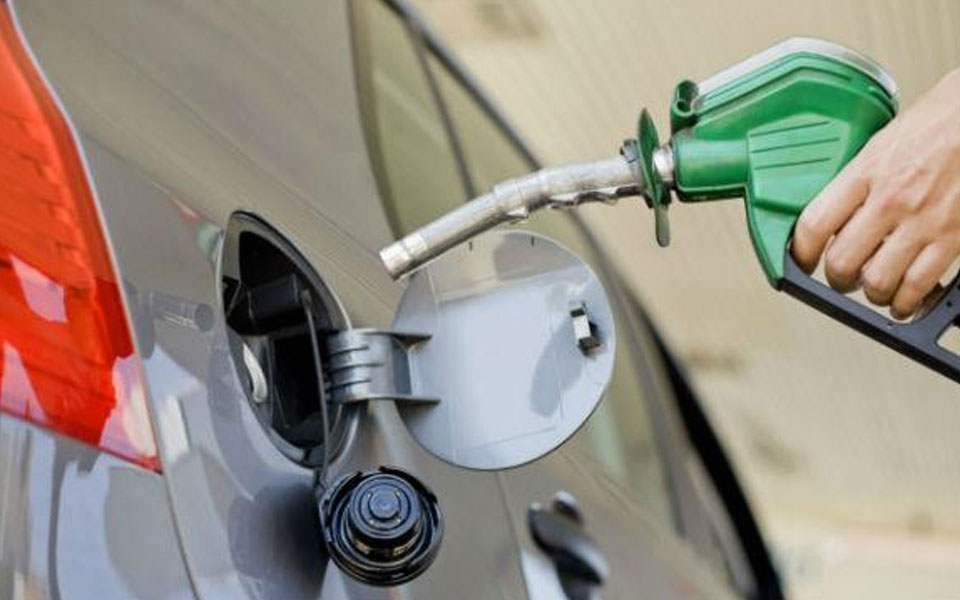New Delhi, Nov 4: Petrol price has been cut by over Rs 4 per litre and diesel by Rs 2.33 in the last 18 days on softer international rates, a pace faster than the spike in prices witnessed in the two-month period beginning mid-August.
Petrol price Sunday was cut by 21 paise a litre and diesel by 17 paise, according to a price notification issued by state-owned fuel retailers.
In Delhi, petrol now costs Rs 78.78 per litre while diesel is priced at Rs 73.36, it said. Petrol in Mumbai costs Rs 82.28 and diesel Rs 76.88.
With this, the reduction in rates in last 18 days now totals Rs 4.05 per litre for petrol and Rs 2.33 for diesel. Rates have been on the decline since October 18.
Petrol price had touched a record high of Rs 84 per litre in Delhi and Rs 91.34 in Mumbai on October 4. Diesel on that day had peaked to Rs 75.45 a litre in Delhi and Rs 80.10 in Mumbai.
Prices had started to climb from August 16. Petrol in Delhi was priced at Rs 77.14 and in Mumbai at Rs 84.58 per litre on August 15. Diesel on that day was priced at Rs 68.72 per litre in Delhi and Rs 72.96 in Mumbai. Between August 16 and October 4, petrol price was hiked by Rs 6.86 per litre and diesel by Rs 6.73.
On that day, the government decided to cut excise duty on petrol and diesel by Rs 1.50 per litre each and asked state-owned fuel retailers to subsidise the price by another Re 1 a litre by reducing their margins.
Subsequent to this, the petrol price came down to Rs 81.50 per litre in Delhi and diesel to Rs 72.95 a litre on October 5. In Mumbai, rates fell to Rs 86.97 per litre for petrol and Rs 77.45 in case of diesel.
As the international oil prices continued to rise, price of petrol and diesel in Delhi increased to Rs 82.83 and Rs 75.69 on October 17. In Mumbai, rates touched Rs 88.29 a litre for petrol and Rs 79.35 for diesel.
But since then, international oil prices have been falling and rupee has also appreciated, resulting in decline in retail rates.
Industry sources said as per the assessment, the retail prices of petrol and diesel may reign easy in the next few days.
The retail selling price of petrol and diesel is dependent on the international prices of benchmark fuel and the rupee-US dollar exchange rate. This is because a large proportion of country's requirement is met through imports.
Let the Truth be known. If you read VB and like VB, please be a VB Supporter and Help us deliver the Truth to one and all.
Panaji (PTI): As part of a crackdown against tourist establishments violating laws and safety norms in the aftermath of the Arpora fire tragedy, Goa authorities on Saturday sealed a renowned club at Vagator and revoked the fire department NOC of another club.
Cafe CO2 Goa, located on a cliff overlooking the Arabian Sea at Vagator beach in North Goa, was sealed. The move came two days after Goya Club, also in Vagator, was shut down for alleged violations of rules.
Elsewhere, campaigning for local body polls, AAP leader Arvind Kejriwal said the fire incident at Birch by Romeo Lane nightclub at Arpora, which claimed 25 lives on December 6, happened because the BJP government in the state was corrupt.
An inspection of Cafe CO2 Goa by a state government-appointed team revealed that the establishment, with a seating capacity of 250, did not possess a no-objection certificate (NOC) of the Fire and Emergency Services Department. The club, which sits atop Ozrant Cliff, also did not have structural stability, the team found.
The Fire and Emergency Services on Saturday also revoked the NOC issued to Diaz Pool Club and Bar at Anjuna as the fire extinguishers installed in the establishment were found to be inadequate, said divisional fire officer Shripad Gawas.
A notice was issued to Nitin Wadhwa, the partner of the club, he said in the order.
Campaigning at Chimbel village near Panaji in support of his party's Zilla Panchayat election candidate, Aam Aadmi Party leader Kejriwal said the nightclub fire at Arpora happened because of the "corruption of the Pramod Sawant-led state government."
"Why this fire incident happened? I read in the newspapers that the nightclub had no occupancy certificate, no building licence, no excise licence, no construction licence or trade licence. The entire club was illegal but still it was going on," he said.
"How could it go on? Couldn't Pramod Sawant or anyone else see it? I was told that hafta (bribe) was being paid," the former Delhi chief minister said.
A person can not work without bribing officials in the coastal state, Kejriwal said, alleging that officers, MLAs and even ministers are accepting bribes.





